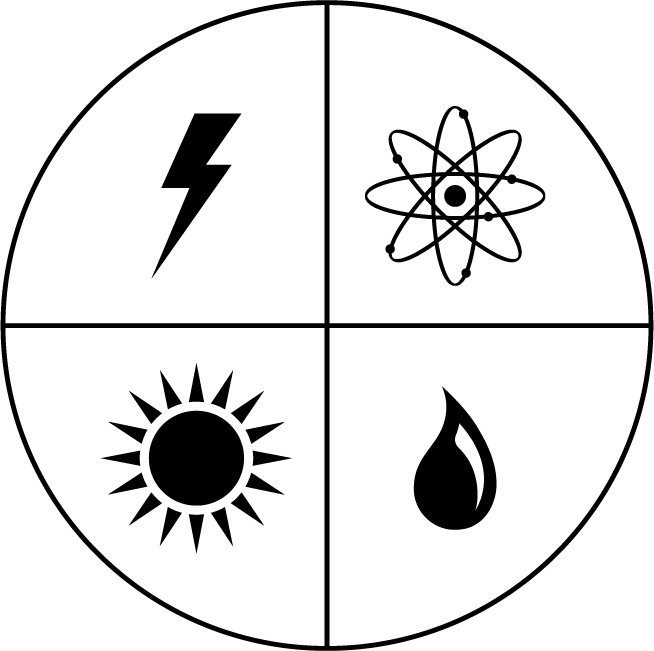Mindful of the focus this project places on general readability and accessibility of concepts, The Next Giant Leap sources facts and data from a wide spectrum of sources under a transparent methodology.
While hard facts and technical parameters are nigh-exclusively sourced from objectively reputable sources (academic, public sector, industry whitepapers and data sheets), this writing also includes supporting facts from supplemental sources, including journalistic outlets, technical publications and, in very limited occurrences, opinion pieces.
These supplemental sources are included for readability – a primary reason people don't read academic journals is they're nearly impossible to read unless one is a professional academic; my audience is the collective and thus the citation policy of The Next Giant Leap is geared for the readability by the collective above all else.
Consequently, this writing will approach sources under the following reasoning:
Government sources: these sources include both domestic and international government agencies (Bureau of Labor and Statistics, Environmental Protection Agency, United Nations, World Health Organization, etc.). This writing considers these sources reliable and factual unless cause is presented to believe otherwise.
Scientific / technical media: these sources include media outlets dedicated to scientific / technical research (Scientific American, National Geographic, CNET, Wired, ARS Technica, etc.). This writing considers these sources reliable and factual unless cause is presented to believe otherwise.
Academic sources and journals: these sources include university publications (harvard.edu, etc.) and academic journals (Nature, etc.) and press releases by universities. This writing considers these sources reliable and factual unless cause is presented to believe otherwise.
Flagship journalism: these sources include news media outlets with established pedigrees. These include Associated Press/Reuters, BBC, Washington Post, New York Times, Wall Street Journal, The Atlantic, Bloomberg, USA Today, LA Times, Boston Globe, but will also include other sources if the material is well-written and cited appropriately. Even if their editorial and opinion boards have a known ideological slant, their news media maintains a high degree of integrity in terms of factual reporting and commitment to issuing public retractions in the event they misstate facts. Consequently, this writing considers these sources reliable and factual, unless cause is presented to believe otherwise.
*This author and writing refuses to entertain the false and disingenuous trend of declaring legitimate media “fake news” if they print facts inconvenient to an ideological or political narrative.
Smaller-circulation high-brow journalism: these sources include media outlets with a solid degree of ethical integrity in journalism, but are smaller circulation. They include financial and industry publications, local newspapers, etc. Although they may have an ideological slant, their ethics in journalism remains high. This writing considers these sources reliable and factual, unless cause is presented to believe otherwise.
Ideological mouthpieces: these sources include broadcast platforms for a known political ideology (Huffington Post, Fox News, CNN, National Review, The Nation.) Although some of these sources often have solid reporting and analysis, their ideological slant is severe enough to warrant their exclusion as sources in this writing, barring a few exceptions:
- In cases where the mouthpiece publishes material of uncanny excellence and factual support, an exception may be made, and the material may be included in one or two citations.
- In cases where the mouthpiece publishes material contrary to its ideological slant (Fox News supporting a traditionally liberal position or Huffington Post supporting a traditionally conservative position), the material may be included if it is itself well-reasoned and/or well-cited, but these circumstances are limited and generally only pertain to background information on social issues for ease of explanation.
- In cases where the mouthpiece is reporting in areas to which it has demonstrated significant expertise, the material may be included in a citation.
Barring these exceptions, ideological mouthpieces are generally excluded.
Wikipedia is cited primarily for “general background” information on concepts, locations, overviews of systems or historical events. Although its editorial team has proven quite adept at ensuring adherence to facts, it's open-edit policy makes it less desirable for direct citations of specific, novel facts. However, for general topics and scientific concepts, it is highly effective at providing background information for people unfamiliar with the subject material in question. For this reason, relevant Wikipedia articles may be included in certain citations to provide clearer context.
Think tanks are generally cited as reliable even if they have an ideological slant, as they have demonstrated a sufficient degree of ethics when reporting. This writing generally considers these sources reliable and factual, unless cause is presented to believe otherwise.
Industry publications and whitepapers are material presented by organizations with a vested commercial interest of the material they're reporting on. This information is generally considered reliable and factual if it is itself cited and provides calculations that can be independently verified.
Third-party blogs and statistics services: these sources include blogs like Nate Silver's fivethirtyeight and statistics services like statista and brilliantmaps.org (for global population in urban environments). In the limited areas they are used, they are considered reliable and factual, barring any reason to believe otherwise.
